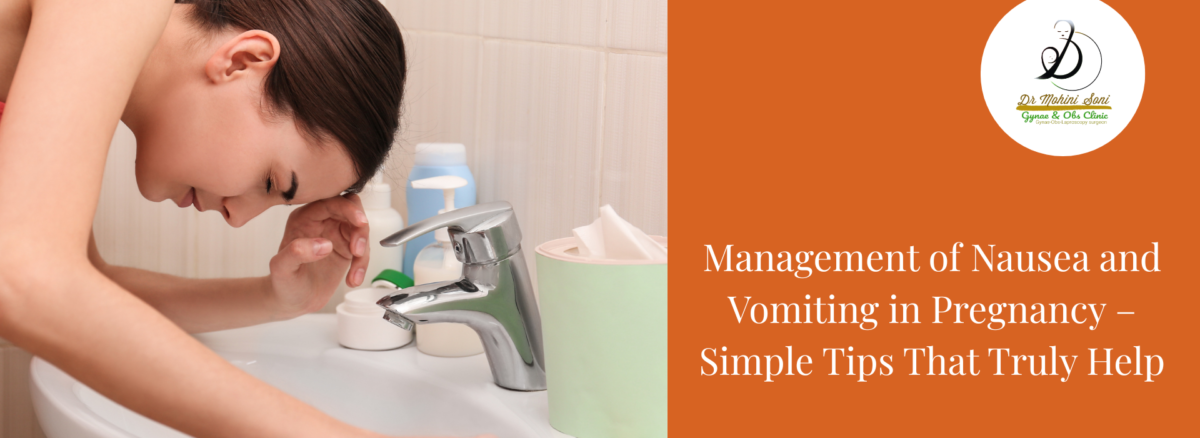You were dreaming of baby names and glowing skin… but instead, you’re clutching a bucket every morning. Sound familiar? Welcome to the very real world of pregnancy nausea. While it’s part of the journey for many, that doesn’t mean you have to suffer through it. If you’re feeling overwhelmed, you’re not alone. In fact, up to 70–80% of expecting mothers experience nausea during the first trimester. The good news? It can be managed—with the right care, simple lifestyle changes, and medical support when needed.
Here’s a guide on handling morning sickness, shared with insights from Dr. Mohini Soni, a trusted gynecologist in Vasant Kunj, Delhi, known for her holistic approach to pregnancy care, especially in high-risk pregnancy cases.
Why Does Morning Sickness Happen?
The exact cause isn’t fully understood, but rising pregnancy hormones—especially hCG and estrogen—are known to play a role. Morning sickness usually starts around the 6th week and peaks by 9–10 weeks. For most women, symptoms ease by the end of the first trimester, though some may feel it longer.
Simple Tips to Ease Nausea and Vomiting
- Eat Small, Frequent Meals
An empty stomach can make nausea worse. Try eating every 2–3 hours, even if it’s just a few bites of crackers, fruits, or toast. - Stay Hydrated
Sip water throughout the day. If plain water feels difficult, try coconut water, lemon water, or light herbal teas (after confirming safety with your gynecologist). - Avoid Strong Smells
Perfumes, cooking smells, or even certain foods can trigger nausea. Identify your triggers and try to stay away from them. - Choose Dry, Bland Foods
Biscuits, toast, khichdi, or plain rice can be soothing. Spicy or oily food may make nausea worse. - Ginger Helps
Ginger in small amounts—like ginger tea or ginger candies—can help reduce nausea for many pregnant women. But use it in moderation. - Get Enough Rest
Fatigue can make nausea worse. Try to rest when you feel tired and sleep early if possible. - Fresh Air and Light Walks
A short walk or sitting in fresh air can ease nausea and boost your energy.
When to See a Doctor
If your vomiting is frequent, severe, or you’re unable to keep food or water down, it could be hyperemesis gravidarum—a more serious form of morning sickness that needs medical attention.
This is especially important if you have a high-risk pregnancy, as dehydration and weight loss can affect both you and your baby.
Dr. Mohini Soni, renowned for managing high-risk pregnancies in Delhi, offers safe, personalised treatment for pregnancy-related complications. She also provides expert care in laparoscopic surgeries and common gynecological procedures for women of all ages.
Medical Treatment Options
When needed, your gynecologist may prescribe:
- Vitamin B6 supplements
- Antiemetic medicines (safe in pregnancy)
- IV fluids if dehydration is present
These treatments are safe when monitored by a qualified specialist like Dr. Mohini Soni, who ensures both mother and baby stay healthy throughout.
Conclusion
Nausea and vomiting during pregnancy can be uncomfortable—but with the right care, it’s manageable. Listen to your body, eat what works for you, and don’t hesitate to reach out for support when you need it.
If you’re looking for expert pregnancy care in Vasant Kunj, or managing a complicated pregnancy, Dr. Mohini Soni is one of the best gynecologists in Delhi for compassionate, experienced care.
Book a consultation today and let your pregnancy journey be guided by care, comfort, and confidence.

